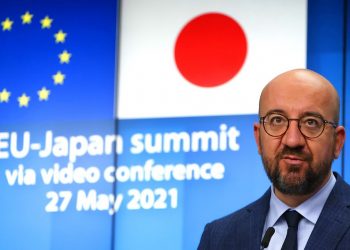The Council adopted conclusions on the European Universities initiative – Bridging higher education, research, innovation and society: paving the way for a new dimension in European higher education. The initiative, launched by EU leaders in 2017, will be fully rolled out during the EU’s 2021-2027 financing period. Within the European Universities alliances, students, staff and researchers should be able to move seamlessly between partner institutions to train, teach and do research.
With their conclusions, ministers encourage member states and the Commission to make sure that the initiative remains central to building a European Education Area by 2025, inspiring the transformation of higher education in the EU and helping to achieve the ambitious vision of an innovative, globally competitive and attractive European Education Area and European Research Area. To that end, the Council invites member states to take advantage of all available funding possibilities, including the Recovery and Resilience Facility (the EU’s post-crisis budgetary instrument), to support the development of ‘European Universities’.
EU alliance of European Universities
Ministers also recommend more cooperation between education authorities, higher education institutions and stakeholders to remove obstacles to European level cooperation. In this context, they suggest exploring the need for and feasibility of joint European degrees within the alliance of ‘European Universities’. A stepwise approach to joint recruitment schemes for teachers and researchers should be promoted by ‘European Universities’, aimed at effective “multidirectional” and “balanced” brain circulation across Europe, associated with strengthened responsible research and teaching careers, particularly for young researchers.
In order to allow member states to monitor the development of the European Universities initiative, they asked the Commission to report back, by the end of 2021, on the main outcomes of the mid-term review of the first alliances.
We all must guarantee that ‘European Universities’ are made operational as ‘test beds’ for student-centred approaches, addressing societal challenges and skills needs in Europe. They should also act as ‘test beds’ for responsible research and teaching and the recruitment of young researchers, including improved tenure track systems, and to strengthen career management and diversification. ‘European Universities’ should foster the adoption of open science principles, including the guarantee that career development can be associated with research publications freely available on journal websites, or through public repositories, as well as other open science practices, such as open access publishing, knowledge and data sharing, and open collaboration.
Manuel Heitor, Minister of Science and Higher Education of Portugal
Ministers also stressed that the initiative is showing its first results as – according to a recent survey – members of the first 17 ‘European Universities’ perceived that being in an alliance helped them to navigate the COVID-crisis and would allow them to recover faster by pooling resources and strengths.
European Universities Initiative supports EU Higher education
The aim of this initiative is to bring together a new generation of creative Europeans able to cooperate across languages, borders and disciplines to address societal challenges and skills shortages faced in Europe.
In its December 2017 European Council Conclusions, EU leaders called on Member States, the Council and the Commission to strengthen “strategic partnerships across the EU higher education institutions and [encourage] the emergence by 2024 of some twenty ‘European Universities'”. The European Universities initiative responds to this call.
Political ambitions first expressed through the speech of French President Emmanuel Macron in September 2017 and then by the heads of states and governments at the Gothenburg summit in December 2017 created the momentum. In record time, this enabled the European Commission in to set up a pilot scheme embedded into the ongoing Erasmus+ programme with the first call in 2019. Europe’s universities reacted with great enthusiasm as many of them were already engaging in transnational partnerships and saw the chance to deepen collaborations on another scale. Top-down policy level and bottom-up institutional dynamics seemed to match.
Erasmus Student Exchanges Programme in the time of Coronavirus
Higher education needs to provide students, staff and researchers with the skills to find their way in a changing labour market – where a demand for highly skilled people is rising – and to navigate the green and digital transitions. This requires an increased level of cooperation between higher education institutions.
Following two calls in 2019 and 2020, financed by the Erasmus+ programme, 41 European University alliances – involving more than 280 higher education institutions – are being established. ‘European Universities’ comprise at least three higher education institutions from three EU member states or other Erasmus programme countries.
What is the EU Universities Initiative?
The education landscape across Europe is changing. At the 2017 Gothenburg Summit, EU leaders outlined a vision for education and culture. In its December 2017 Conclusions, the European Council called on Member States, the Council and the Commission to take forward a number of initiatives, including:
‘…strengthening strategic partnerships across the EU between higher education institutions and encouraging the emergence by 2024 of some twenty ‘European Universities’, consisting in bottom-up networks of universities across the EU which will enable students to obtain a degree by combining studies in several EU countries and contribute to the international competitiveness of European universities’.
Co-developed by higher education institutions, student organisations, Member States and the Commission, the European Universities Initiative responds to this call. Today, it is one of the flagship initiatives of the EU’s ambitions to build a European Education Area.
What is a European University?
European Universities are transnational alliances that will become the universities of the future, promoting European values and identity, and revolutionising the quality and competitiveness of European higher education. In order to achieve this major step forward, the Commission is testing different cooperation models for European Universities with two calls for proposals under the Erasmus+ programme. The alliances will:
- include partners from all types of higher education institution and cover a broad geographic scope across Europe
- be based upon a co-envisioned long-term strategy focussed on sustainability, excellence and European values
- offer student-centred curricula jointly delivered across inter-university campuses, where diverse student bodies can build their own programmes and experience mobility at all levels of study
- adopt a challenge-based approach according to which students, academics and external partners can cooperate in inter-disciplinary teams to tackle the biggest issues facing Europe today













